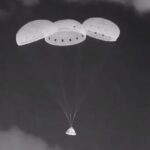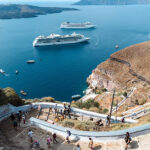The rise of PASOK to power marked changes in the Greek attitude towards the Soviet Union (and the Eastern coalition as a whole), even though there were also significant elements of continuity with the respective policies of the governments of Kon. Karamanlis and G. Ralli. From the beginning, the new Prime Minister Andreas Papandreou tried to promote a more “multidimensional” and above all “independent” foreign policy, which presupposed significant openings towards the Eastern bloc and the Third World. At the same time, in his declarations he had repeatedly stood – and continued to stand – in favor of the de-escalation of the Cold War rivalry, with the ultimate goal or declared hope of the final overcoming of the Cold War. An important aspect of PASOK’s first four-year foreign policy was the pursuit of improving relations and developing Greece’s cooperation with the Soviet Union and the communist regimes of Eastern Europe.
Papandreou’s strategy
Andreas Papandreou’s motives for seeking to deepen Athens-Moscow relations were varied. Firstly, the government’s desire to de-escalate the international tension between the two coalitions and to remove the risk of a nuclear holocaust in Europe was sincere, but also the new Greek leadership’s desire to appear distanced from the influence and politics of the Americans. But as Papandreou was not really willing to come into conflict with Washington, understanding that doing so would undermine Greece’s international position and power (especially vis-à-vis Turkey), he preferred to distance himself on a number of other issues, where vital Greek interests were not at stake (as in Polish or nuclear weapons issues). Also, at least until 1984, Papandreou chose to stand in his public speech more critical of Washington than of Moscow.
Moreover, the new government’s moves to further improve relations with the Soviet Union were part of Papandreou’s broader strategy of finding additional international footholds to balance Turkey. Thus he himself, in talks he had with Soviet officials after assuming the prime ministership, sought the intervention of the Soviet Union, so that it could exert its influence on Turkey so that the latter would refrain from provocative military or diplomatic actions in the Aegean and Cyprus and to make possible the peaceful resolution of disputes with respect for international law. Of course, Athens also harbored the hope for further development of the bilateral Greco-Soviet trade and economic ties, so that the Greek economy would benefit. Even before the assumption of power by PASOK, Greek-Soviet agreements had been signed or launched for the repair of Soviet commercial and warships in the shipyards of Neorio Syros, as well as for the construction of an alumina manufacturing plant (a large part of which would then be exported to the Soviet Union). . Also, at the beginning of 1982, Soviet officials gave assurances to the Greek government that the USSR would proceed with orders of large quantities of agricultural products from Greece (such as citrus fruits, tobacco, wine), in order to improve the trade balance that was permanently in deficit for the Greek side.
Domestic policy objectives
Finally, there were also calculations regarding future developments in the domestic political scene. Given the power of the KKE mainly in the trade union arena, Andreas Papandreou wanted to mitigate any reactions from the communists and the more radical wing of PASOK for the delay or postponement of the implementation of important announcements of the “Change” government. Announcements and promises that either concerned the field of international politics (for example, the country’s stay in NATO and the EEC and relations with the USA) or the field of the economy, with the government being pressured to exercise an even more generous redistributive policy. The tightening of ties with the Soviet Union would on the one hand appease the leadership and followers of the KKE, on the other hand it would give the Kremlin the incentive to “advise” the KKE to maintain a relatively tolerant attitude towards the PASOK government. Indeed, at the given juncture the Soviet leadership saw some benefits from Greece’s diversification within the framework of NATO and the EEC. Thus, the KKE – which in the municipal elections of 1982 had achieved very good results – generally kept relatively low opposition tones in relation to the PASOK government’s foreign policy until 1985, focusing its opposition struggle on the front of the strike movements.


The policy of equal distances from Greece and Turkey was maintained
In 1983, while tension was gradually escalating in Europe between the NATO and Warsaw Pact alliances due to the so-called “European Missile Crisis”, as the arrival of the new American Pershing II and Cruise missiles was imminent in the fall of the same year “, the Greek government showed increased mobility. In January 1983, in view of the arrival of Soviet Prime Minister Nikolai Tikhonov in Athens, the Greek side welcomed the Soviet proposal for the conclusion of a non-aggression pact and the gradual limitation of armaments between the Warsaw Pact and NATO. And in general, the Papandreou government and the prime minister personally had adopted – at least rhetorically – positions more friendly to the Kremlin’s official declarations, which called for a suspension of the development of new American missiles in Europe and for new negotiations to reduce armaments (on the contrary , NATO was willing to suspend development of new US missiles if the Soviets first completely retired their own SS-20 intermediate-range missiles).
As a result of the PASOK government’s stance, there was a limited – and at any rate temporary – movement of Moscow towards the Greek positions regarding Greek-Turkish relations. Also, the positive climate that had been cultivated in bilateral relations during the previous years was maintained and improved. Also, during the years 1982-1985, a series of visits by the leaders of the two states took place. More important was the official visit of Soviet Prime Minister Nikolai Tikhonov to Athens in February 1983. It was the first visit of a Soviet leader to Greece. Tikhonov had talks with the Greek political (Papandreou) and state (Karamanli) leadership. On a political level, the climate at the meetings was very good, while the two sides agreed – rather generally – on the usefulness of denuclearized zones and the need to limit nuclear and conventional armaments “to the lowest possible level”. However, the Greek government did not adopt a stance condemning the imminent deployment of the new American missiles in Western Europe. Nor did the Soviets revise their expressed positions on Cyprus and the Aegean and essentially maintained the policy of “equal distances” towards Greece (and Cyprus) and Turkey.
While on the issues of “hard policy” there was no great scope for Greco-Soviet convergence, the prospects for greater development of Greco-Soviet economic and commercial relations appeared more encouraging. The two sides signed a series of agreements, such as a ten-year economic cooperation agreement for the establishment of joint ventures that would be active in the fields of electricity, natural gas and renewable energy sources, agricultural production, construction and expanded to environmental issues. Also, the construction, with Soviet help, of an alumina production plant was agreed. When the project was completed, a significant portion of the alumina produced would be exported to the Soviet Union.
The Greek visits
For his part, Andreas Papandreou visited Moscow three times. The first was in November 1982 and the second in February 1984, at the funerals of Soviet leaders Leonid Brezhnev and Yuri Andropov respectively. The visit to the USSR, in July 1984, of a Greek parliamentary delegation led by the Speaker of the Parliament G. Alevras intervened. The talks took place in a good atmosphere, but without producing any tangible result. Then, in February 1985, Andreas Papandreou, accompanied by several ministers, officially visited Moscow. There he was received with honors as an “advocate of peace, recession and friendly relations with the Soviet Union”. The Greek Prime Minister had talks with his counterpart Tikhonov and Foreign Minister Andrei Gromyko. However, it was not possible to meet with his successor Yuri Andropov, the general secretary of the CPSU and chairman of the Supreme Soviet, Konstantin Chernyenko, who was very seriously ill. From the Greek side, the government’s main goals were two. On the one hand, to maintain and if possible further improve the already good climate in bilateral relations. On the one hand, to substantially upgrade Greek-Soviet trade and economic cooperation, with the main objectives of reducing the Greek trade deficit with the USSR; the promotion of industrial – in addition to agricultural – products to the Soviet market; the development of bilateral maritime cooperation; and the conclusion of agreements for the construction large industrial and technical projects.
In the end, the visit did not lead to a substantial deepening of Greek-Soviet relations, while no progress was made in the following years either. More generally, during the 1980s the favorable climate did not lead to a more substantive approach. Although Moscow adopted, at the level of declarations, positions more friendly to Greek interests in Cyprus and the Aegean, it did not significantly change the policy of maintaining equal distances between Athens (and Nicosia) and Ankara. Especially with regard to Greek-Turkish relations, the Kremlin considered that there were Greek-Turkish differences in the Aegean (beyond the issue of the continental shelf) that should be resolved through dialogue and not unilateral Turkish claims and provocations. At the same time, Moscow continued the multi-level economic, commercial and technical cooperation it had developed with the Turkish side since the early 1970s.
Mr. Dionysis Hourhoulis is an assistant professor at the Department of History of the Ionian University.
Edited by: Evanthis Chatzivasiliou




